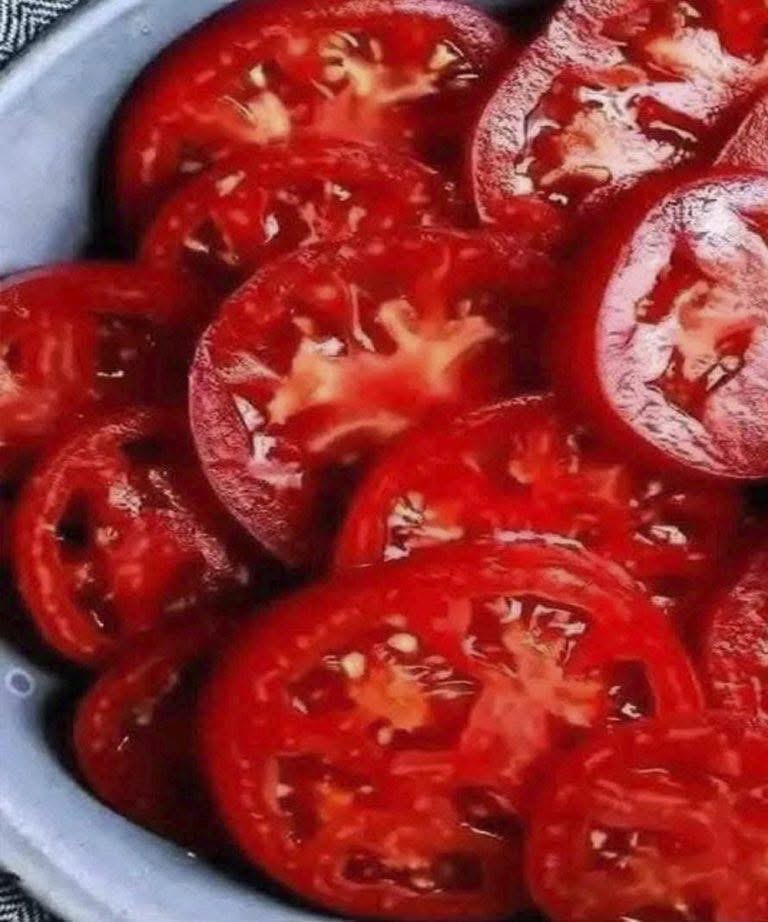
For many of us, tomatoes have always been a kitchen staple. They’ve been sliced into fresh summer salads, simmered into comforting sauces, and even blended into bright morning juices. Their flavor can be sweet, tangy, or deeply savory — and their versatility makes them one of the most reliable ingredients in the pantry.
But tomatoes are far more than just a garnish or side dish. They are a nutritional powerhouse that supports health in ways you might not expect. Whether you want to strengthen your heart, protect your skin, or simply make your meals more vibrant, this humble fruit (yes, it’s technically a fruit!) deserves to be celebrated.
A Small Food with Big Nutritional Power
Tomatoes are naturally low in calories yet packed with nutrients. Just one serving provides:
- Vitamin C – boosts immunity and helps maintain healthy, youthful skin.
- Vitamin A – supports vision and skin health.
- Vitamin K – essential for blood clotting and strong bones.
- Potassium – balances fluids and supports heart health.
And the real superstar? Lycopene, the antioxidant responsible for the tomato’s rich red color.
Lycopene: The Red That Protects
Lycopene helps neutralize free radicals, those unstable molecules that damage cells and accelerate aging. Research shows that a diet rich in lycopene may:
- Lower the risk of certain cancers, especially prostate cancer.
- Protect cardiovascular health.
- Reduce oxidative stress and inflammation.
Cooking tomatoes actually increases lycopene’s availability, making dishes like tomato sauces or roasted tomatoes especially beneficial.
Tomatoes and Heart Health
Heart health becomes a priority as we age, and tomatoes can help keep things in check. Studies suggest they may:
- Lower LDL (“bad”) cholesterol.
- Support healthy blood pressure levels, thanks to their potassium content.
- Improve blood vessel health and reduce fluid retention.
Simple daily tomato intake can add up to long-term cardiovascular protection.
Fighting Inflammation
Tomatoes contain antioxidants and phytonutrients that may help relieve inflammation linked to arthritis, joint stiffness, and even “silent inflammation” that contributes to heart disease and diabetes.
Regular consumption supports overall well-being, making them a gentle natural ally against chronic conditions.
Tomatoes for Skin and Sun Protection
Tomatoes don’t just work on the inside — they also help from the outside in. Lycopene has been linked to protection against UV damage, acting like an edible sunscreen (though you should never skip real sunblock).
Meanwhile, vitamin C supports collagen production, keeping skin firm, elastic, and youthful.
Fresh or Cooked? The Best Way to Enjoy Them
- Fresh: Great for salads, sandwiches, and snacking.
- Cooked: Releases more lycopene and pairs beautifully with olive oil for enhanced absorption.
Homemade sauces, slow-roasted tomatoes, and soups are not just comforting meals — they’re powerful health boosters.
A Few Precautions
Tomatoes are safe for most people, but their natural acidity can trigger discomfort in those with acid reflux or heartburn. To reduce this effect:
- Cook tomatoes with sweet vegetables like carrots.
- Add a pinch of baking soda to tomato sauces to lower acidity.
- Limit portion sizes if reflux symptoms persist.
Easy Ways to Add More Tomatoes to Your Day
- Breakfast: Add cherry tomatoes to an omelet or avocado toast.
- Lunch: Toss into a leafy salad or blend into gazpacho.
- Dinner: Simmer into pasta sauces, soups, or vegetable stews.
- Snacks: Roast grape tomatoes with olive oil and herbs for a savory treat.
Conclusion: More Than Just a Kitchen Staple
Tomatoes are as beneficial as they are delicious. They add color to your plate, flavor to your dishes, and protection to your body.
The next time you slice into a ripe tomato, remember: you’re not just enjoying a tasty ingredient — you’re nourishing your heart, skin, and long-term health.
In the world of healthy eating, this small fruit is truly a giant.